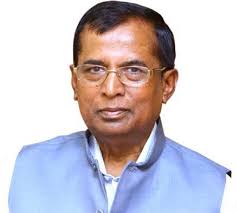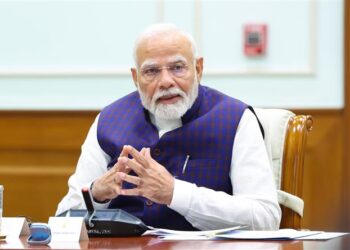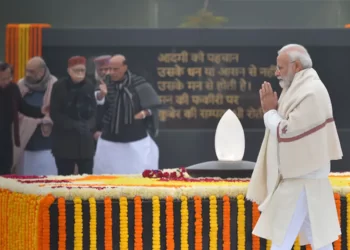Make in India initiative was launched on September 25, 2014 with the objective of facilitating investment, fostering innovation, building best in class manufacturing infrastructure, making it easy to do business and enhancing skill development. The initiative is further aimed at creating a conducive environment for investment, modern and efficient infrastructure, opening up new sectors for foreign investment and forging a partnership between government and industry through positive mindset.
Since its launch, Make in India initiative has made significant achievements and presently focuses on 27 sectors under Make in India 2.0. Department for Promotion of Industry and Internal Trade is coordinating action plans for manufacturing sectors, while Department of Commerce is coordinating service sectors. The list of sectors under Make in India 2.0 is placed at Annexure.
The Government of India is making continuous efforts under Investment Facilitation for implementation of Make in India action plans to identify potential investors. Support is being provided to Indian Missions abroad and State Governments for organising events, summits, road-shows and other promotional activities to attract investment in the country under the Make in India banner. Investment Outreach activities are being carried out for enhancing International co-operation for promoting FDI and improve Ease of Doing Business in the country.
India has registered its highest ever annual FDI Inflow of US $74.39 billion (provisional figure) during the last financial year 2019-20 as compared to US $ 45.15 billion in 2014-2015. In the last six financial years (2014-20), India has received FDI inflow worth US$ 358.30 billion which is 53 percent of the FDI reported in the last 20 years (US$ 681.87 billion).
Steps taken to improve Ease of Doing Business include simplification and rationalisation of existing processes. As a result of the measures taken to improve the country’s investment climate, India jumped to 63rd place in World Bank’s Ease of Doing Business ranking as per World Bank’s Doing Business Report (DBR) 2020. This is driven by reforms in the areas of Starting a Business, Paying Taxes, Trading Across Borders, and Resolving Insolvency.
Recently, Government has taken various steps in addition to ongoing schemes to boost domestic and foreign investments in India. These include the National Infrastructure Pipeline, Reduction in Corporate Tax, easing liquidity problems of NBFCs and Banks, policy measures to boost domestic manufacturing. Government of India has also promoted domestic manufacturing of goods through public procurement orders, Phased Manufacturing Programme (PMP), Schemes for Production Linked Incentives of various Ministries.
Further, with a view to support, facilitate and provide investor friendly ecosystem to investors investing in India, the Union Cabinet on 03rd June, 2020 has approved constitution of an Empowered Group of Secretaries (EGoS), and also Project Development Cells (PDCs) in all concerned Ministries/ Departments to fast-track investments in coordination between the Central Government and State Governments, and thereby grow the pipeline of investible projects in India to increase domestic investments and FDI inflow.
ANNEXURE
List of 27 Sectors under ‘Make in India’ initiative
Manufacturing Sectors
- Aerospace and Defence
- Automotive and Auto Components
- Pharmaceuticals and Medical Devices
- Bio-Technology
- Capital Goods
- Textile and Apparels
- Chemicals and Petro chemicals
- Electronics System Design and Manufacturing (ESDM)
- Leather & Footwear
- Food Processing
- Gems and Jewellery
- Shipping
- Railways
- Construction
- New and Renewable Energy
Service Sectors
- Information Technology & Information Technology enabled Services (IT &ITeS)
- Tourism and Hospitality Services
- Medical Value Travel
- Transport and Logistics Services
- Accounting and Finance Services
- Audio Visual Services
- Legal Services
- Communication Services
- Construction and Related Engineering Services
- Environmental Services
- Financial Services
- Education Services
This information was given by the Minister of State in the Ministry of Commerce and Industry, ShriSomParkash, in a written reply in the LokSabha today.
Source:PIB







 Finance
Finance





